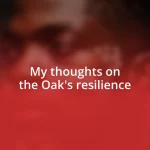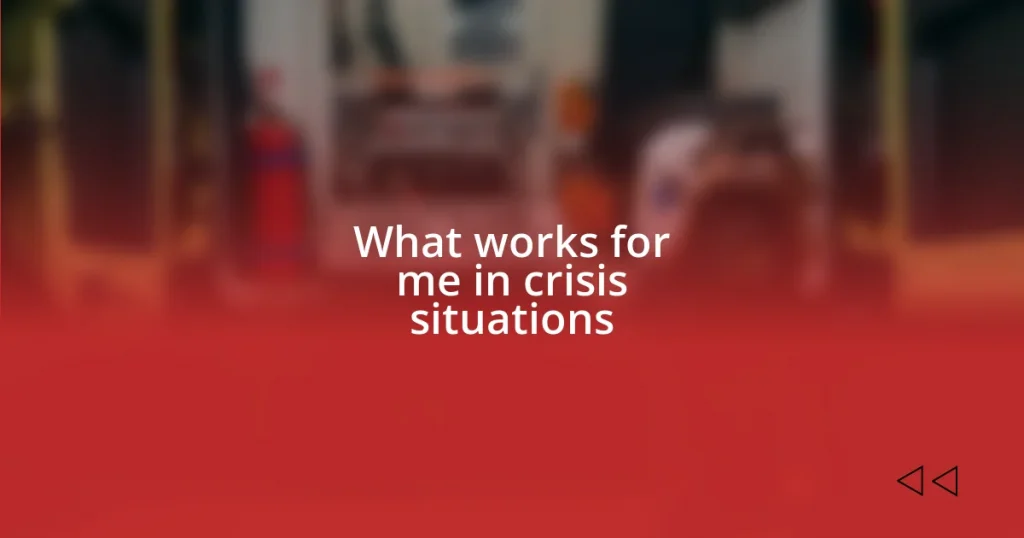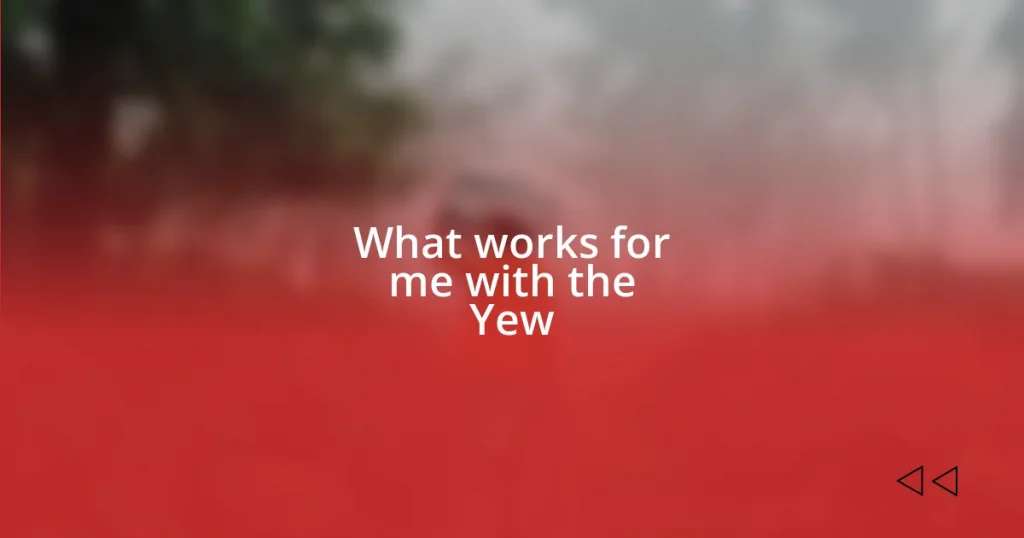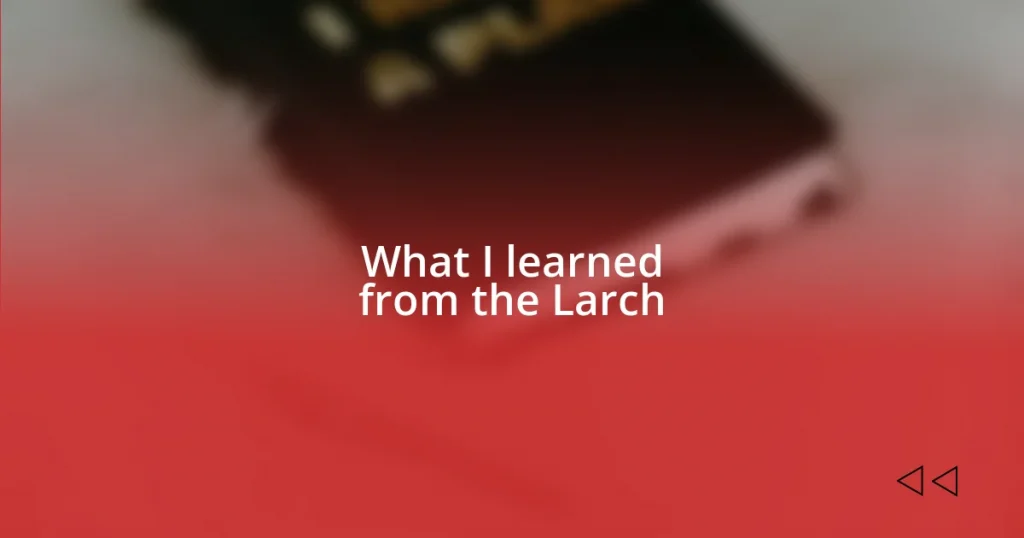Key takeaways:
- Recognizing personal triggers and utilizing grounding techniques, like deep breathing, can significantly help manage stress during crises.
- Establishing a clear crisis response plan with defined objectives, communication channels, and responsibilities enhances preparedness and confidence.
- Building a diverse support network and practicing self-care strategies, such as mindfulness and physical activity, fosters resilience during challenging times.
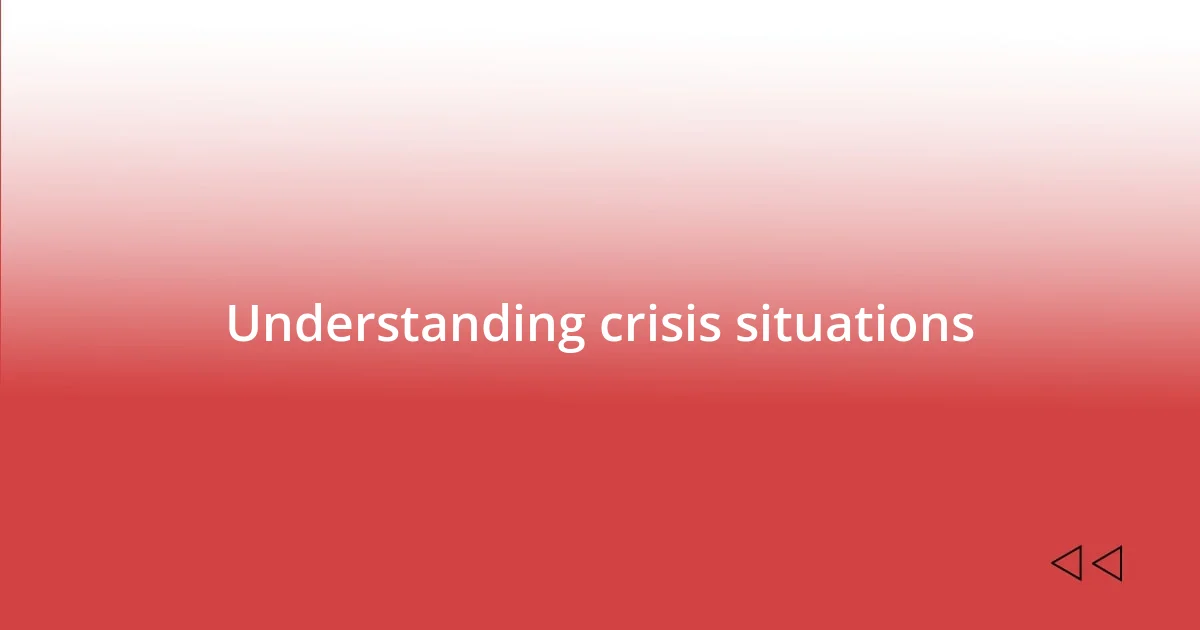
Understanding crisis situations
Crisis situations can manifest in countless forms, from personal emergencies to broader social upheavals. I remember the time when a sudden family health issue threw my world off balance. It’s fascinating how a single moment can shift your perspective and priorities, right?
When faced with a crisis, emotions can run high, often leading to confusion and fear. I’ve found that in those moments, it’s crucial to take a step back and assess the situation rather than react impulsively. Have you noticed how clarity often emerges after we allow ourselves to breathe and think?
Understanding a crisis requires recognizing that everyone experiences stress differently. In my own experience, during a chaotic time in my career, I noticed how supportive networks became my lifeline. Isn’t it incredible how connections with others can provide both comfort and clarity when everything feels so overwhelming?
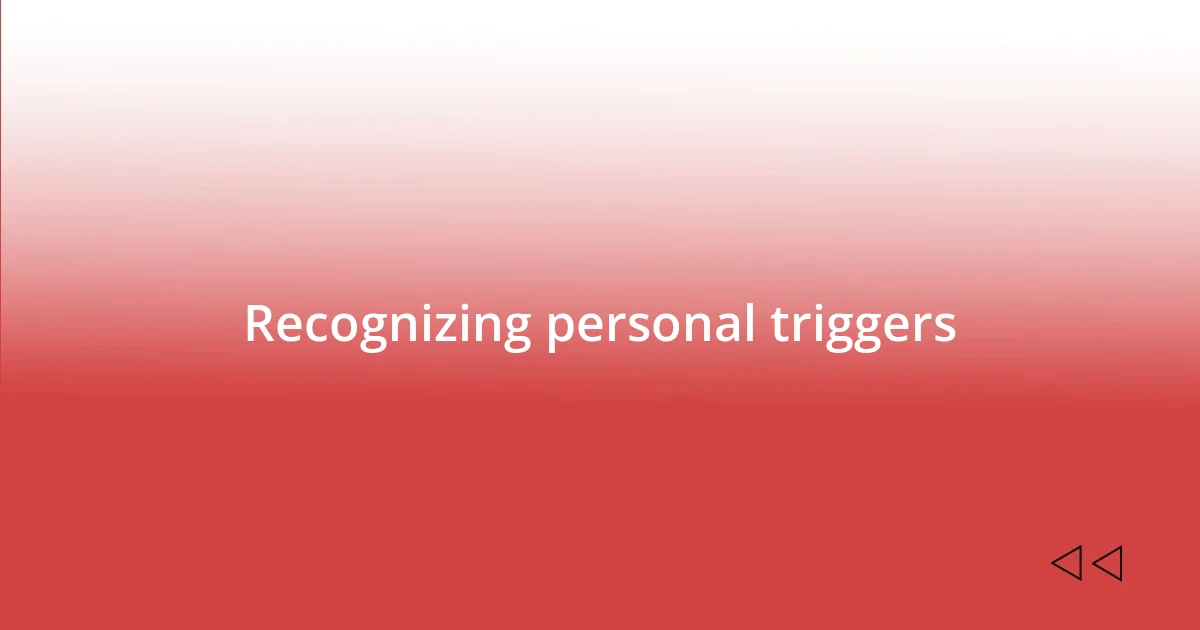
Recognizing personal triggers
Recognizing my personal triggers has been a game-changer in managing crises. For instance, I realized that loud noises and sudden changes in plans make my anxiety spike. Once, during a stressful work project, I found that even a simple unexpected email could send me spiraling. That’s when I understood the value of identifying what sets me off.
Reflecting on my triggers helps me prepare emotionally for challenging times. I’ve learned to create a calm space for myself and practice grounding techniques to counteract the stress. Recently, while navigating a family crisis, I used deep-breathing exercises every time I felt overwhelmed. It was a gentle reminder that I could regain control, even when things felt chaotic.
Through recognizing my triggers, I’ve discovered the importance of self-awareness. Acknowledging my physical responses to stress, like a racing heart or tightness in my chest, allows me to step back and evaluate my emotions. I recall a time in a crowded room during a critical meeting when I felt the familiar tension rise – I excused myself for a moment. In that brief pause, I was able to recalibrate and approach the situation with a clearer mind.
| Triggers | My Responses |
|---|---|
| Loud noises | Practice deep breathing |
| Unexpected changes | Create a calming space |
| Physical tension | Take a moment to step back |
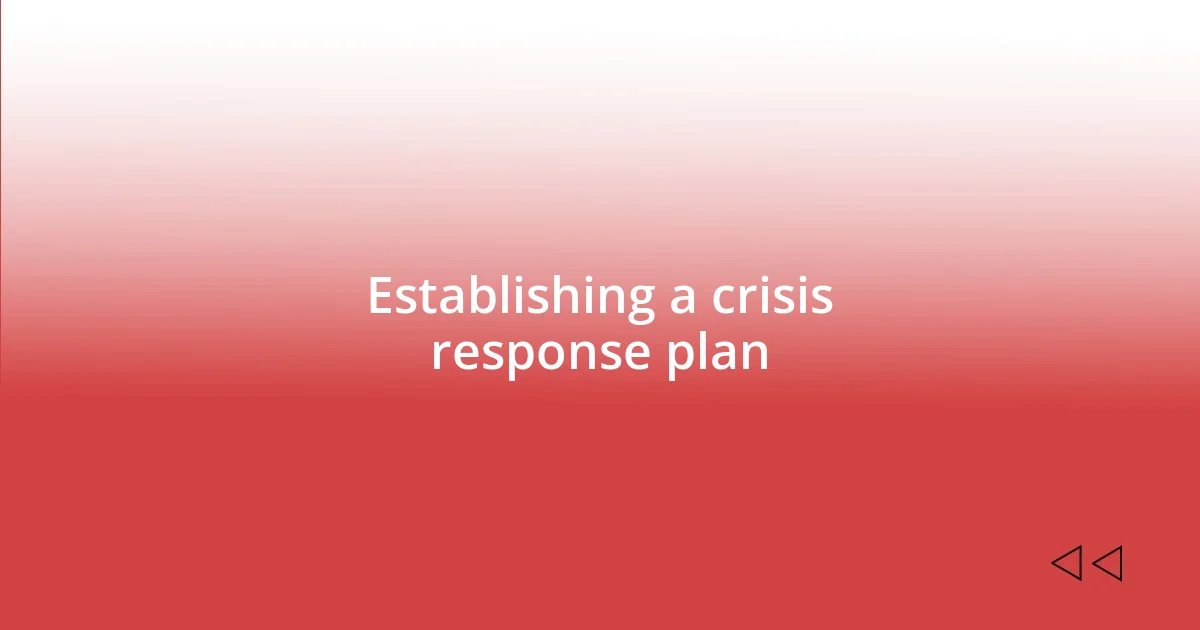
Establishing a crisis response plan
Establishing a crisis response plan is something I’ve found invaluable. It’s like having a safety net ready to catch you when life takes an unexpected turn. In my experience, crafting a well-thought-out plan allows me to respond rather than react, which makes all the difference. I remember when my workplace faced an unforeseen financial setback; having a crisis response plan in place led us to quickly regroup and strategize instead of succumbing to panic.
Here are some core elements I believe are essential to include in any crisis response plan:
- Clear objectives: Define what you hope to achieve during the crisis to steer your actions.
- Communication channels: Establish designated points of contact to ensure everyone stays informed and aligned.
- Responsibilities: Assign specific roles to team members to streamline decision-making and action.
- Resource allocation: Identify the resources, both human and material, that you’ll need to address the crisis effectively.
- Review and adjust: Regularly revisit the plan to adapt it based on past experiences and evolving threats.
Each component can transform how you navigate turbulent times, boosting your confidence and clarity when things get tough. I’m always amazed at how much more empowered I feel just by having these steps laid out in advance.
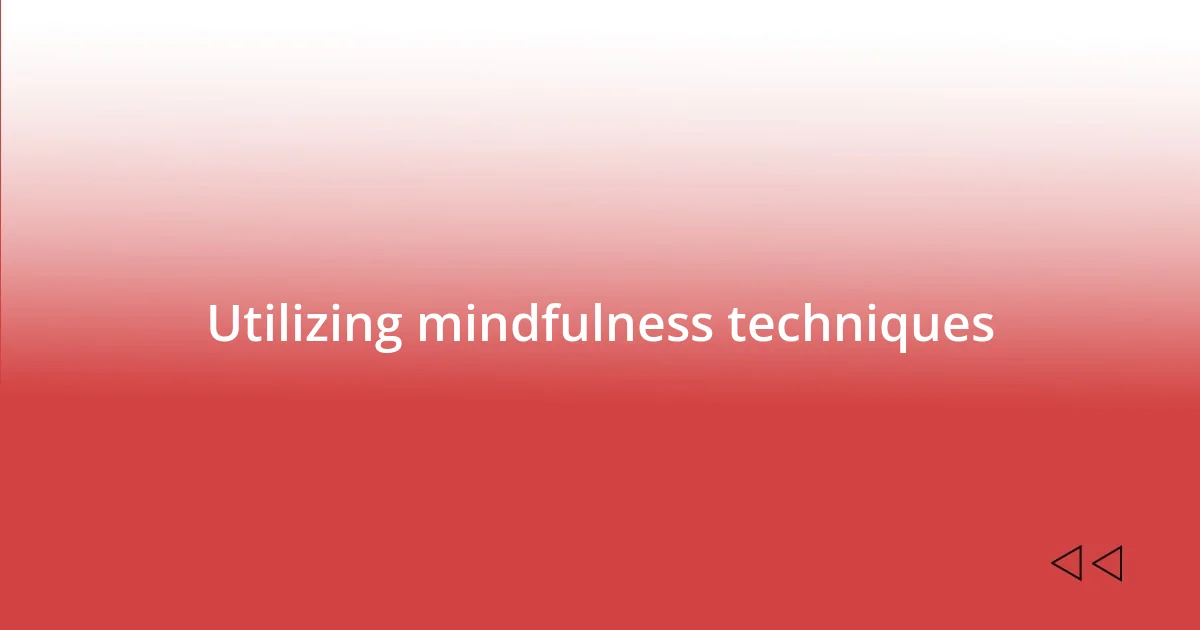
Utilizing mindfulness techniques
Mindfulness techniques have become my go-to strategies during crisis situations. I remember one particularly overwhelming period when everything seemed to crash down at once. Sitting quietly on my couch, I leaned into a focused breathing exercise that helped me tune out the chaos. As I inhaled deeply, I visualized my tension dissipating into the air. This simple act grounded me, reminding me that I could find peace in the midst of a storm.
Incorporating mindfulness into my daily routine has equipped me to handle escalating stress better. For instance, I often practice a short body scan meditation before important meetings, which allows me to check in with my physical sensations and emotions. This tuning into my body helps me become aware of any tightness or discomfort, which I can then release through focused breathwork. Have you ever noticed how your body reacts in stressful situations? Acknowledging those sensations can guide us in managing our responses effectively.
I’ve also found that incorporating mindful moments throughout my day can make a huge difference in overall resilience. Just last week, during a particularly hectic day, I took five minutes to step outside and soak in the sights and sounds of nature. Focusing on the rustling leaves and the feel of the sun on my skin shifted my perspective and brought clarity. It’s fascinating how just a few minutes of mindfulness can transform a chaotic mindset into one that embraces calmness and control.
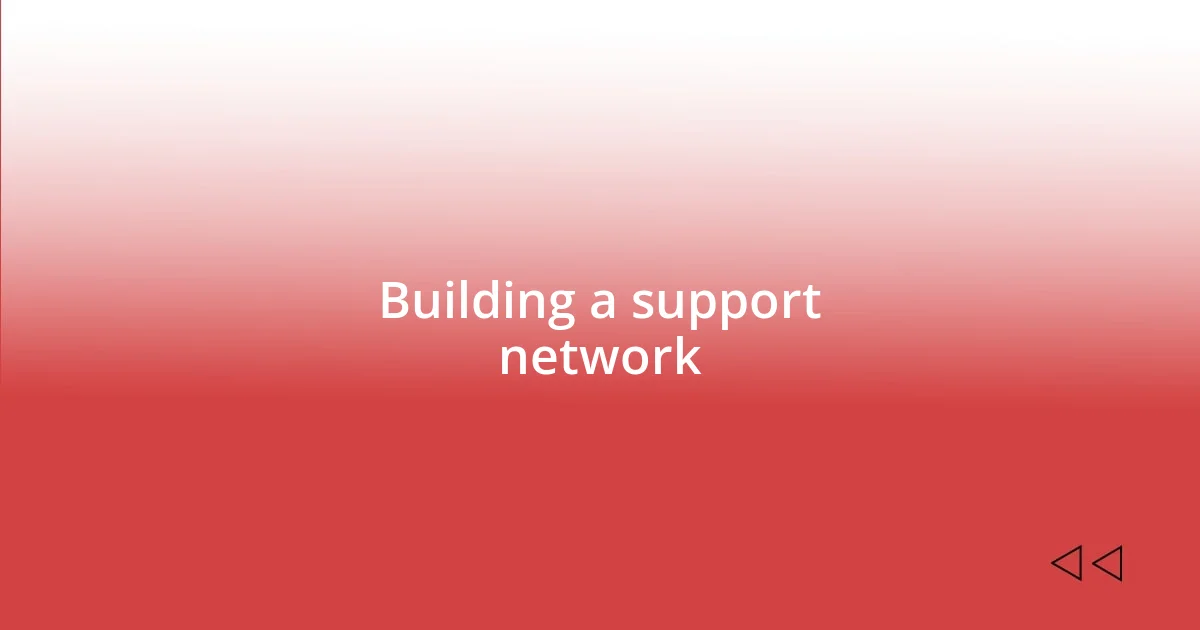
Building a support network
Building a support network has been my lifeline during many challenging times. I remember a particularly difficult phase when I felt utterly isolated. It took me some time to realize that reaching out to friends and family—people who truly cared—was not a sign of weakness but rather a crucial step toward regaining my footing. I often ask myself, “Why do we hesitate to lean on others?” The truth is, sharing burdens doesn’t just lighten the load; it cultivates deeper connections.
Another aspect that’s been incredibly beneficial is diversifying my support system. I’ve made it a point to include not just close friends but also colleagues and mentors. When my last project hit a snag and I felt stressed, I reached out to a former manager for advice. Her perspective was invaluable, illuminating paths I hadn’t considered. It made me realize that sometimes, the most profound support can come from unexpected places. Have you ever been surprised by the wisdom a distant acquaintance can share?
Finally, fostering an open environment where vulnerability is embraced has strengthened my support network. During one tough moment, I held a small gathering with friends to discuss our own struggles, and I’ll never forget the sense of relief that washed over us. Sharing our experiences laid the groundwork for mutual support and understanding, reminding me that we’re all navigating the complexities of life together. It truly transformed our connections—making them richer and more meaningful. Isn’t it amazing how simply being authentic can forge bonds that hold us up in times of need?
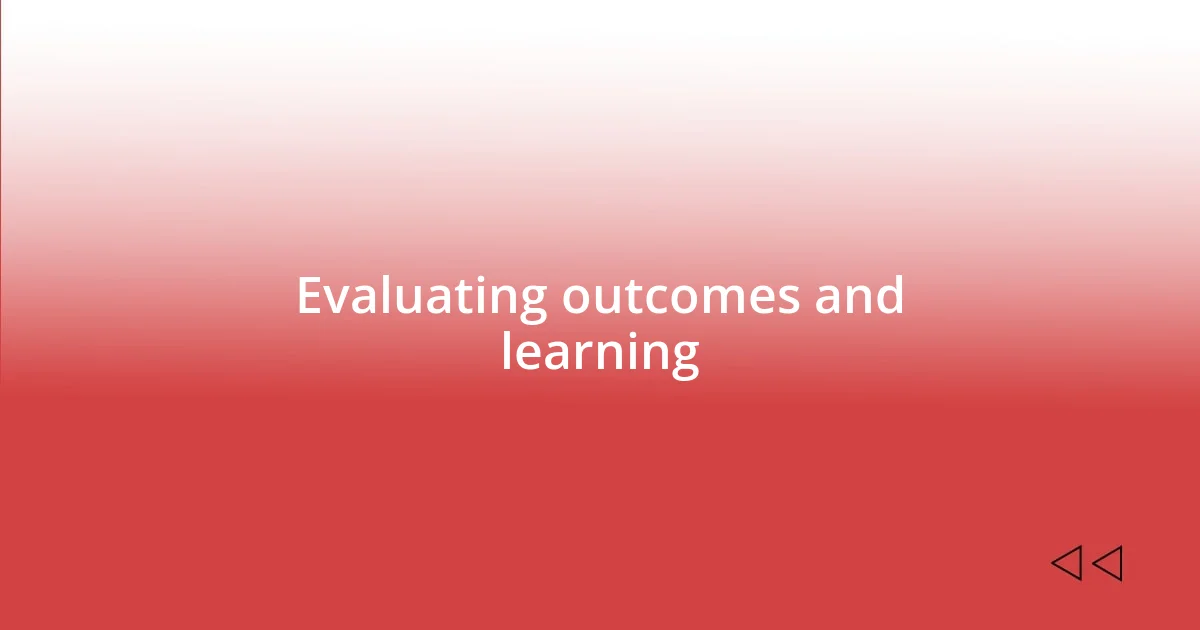
Evaluating outcomes and learning
Evaluating outcomes after a crisis is crucial for personal growth and resilience. I remember a particularly challenging situation where, after managing to get through it, I took a step back to reflect. What lessons did I learn? By noting my reactions and the results, I discovered the importance of remaining adaptable. It’s fascinating how looking back can reveal patterns in our responses that we might not have noticed in the moment.
In assessing the outcomes of my crisis management, I’ve found that journaling is a powerful tool. After a tough experience, I write about what happened and how I felt. This process not only clarifies my emotions but also identifies what strategies worked and what didn’t. Have you ever kept a journal? I often ask myself, “What could I have done differently?” This reflective practice has been instrumental in shaping my approach for next time, allowing me to refine my techniques and learn from my missteps.
Learning from past situations also involves celebrating small victories. Once, after navigating a tumultuous work project, I took the time to acknowledge how far I had come, recognizing my growth rather than solely fixating on the obstacles. This shift in perspective has truly changed how I view challenges. How do you celebrate your wins? Fostering a habit of recognizing our progress not only boosts morale but sets a solid foundation for facing future crises with renewed confidence and clarity.
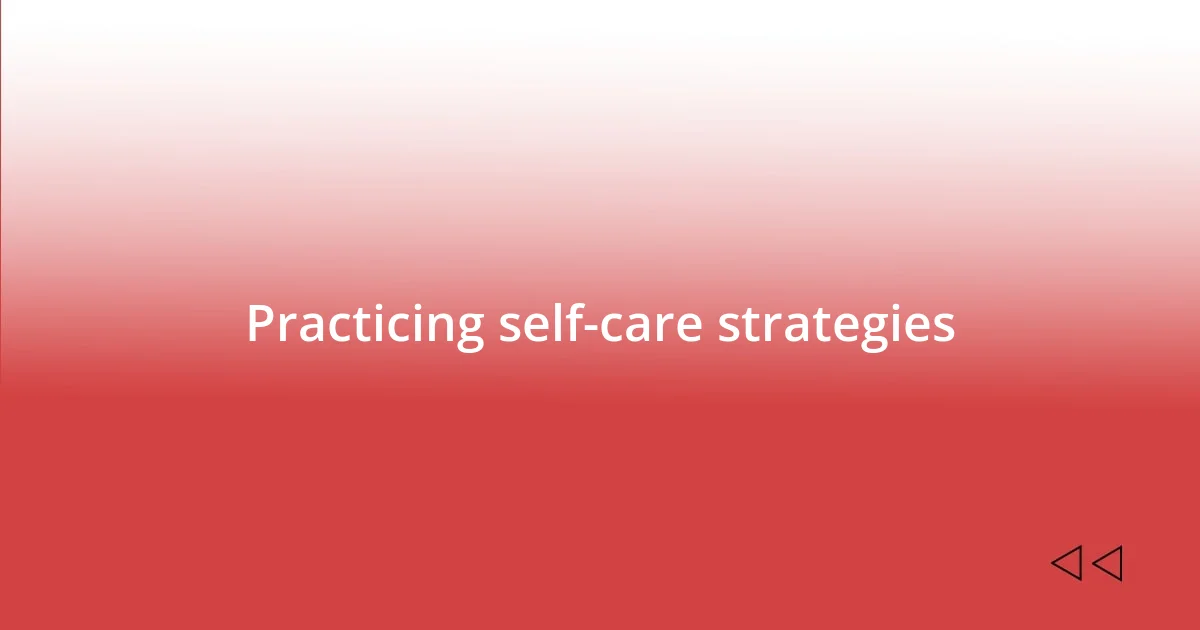
Practicing self-care strategies
Practicing self-care strategies is something I’ve come to see as essential during turbulent times. I remember feeling overwhelmed after a stressful work deadline. To cope, I dedicated some quiet time to meditate and breathe deeply, and instantly, I felt a small yet significant shift in my mindset. Isn’t it fascinating how just a few moments of mindfulness can anchor us amidst chaos?
Another strategy that has worked wonders for me is prioritizing physical activity. Whether it’s going for a brisk walk or indulging in a short yoga session, moving my body allows me to release pent-up stress. During one particularly hectic week, I started incorporating mini workouts between my tasks. The moment I got up and moved, I noticed a burst of energy and clarity. Have you ever experienced that refreshing feeling after a bit of movement?
Additionally, I’ve learned the value of maintaining a balanced diet, especially during crises. There was a time when I succumbed to the convenience of junk food during a stressful period, only to feel lethargic and more anxious. By shifting towards nourishing meals like colorful salads and wholesome grains, I found myself not just physically revitalized but emotionally uplifted as well. Each meal became an opportunity to care for myself—something we often overlook amid life’s storms. How do you nourish your body in challenging times?






